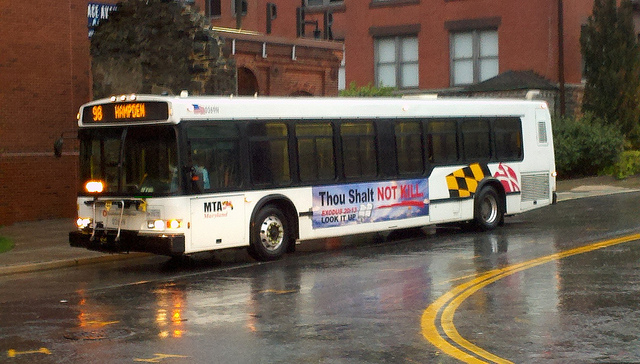By Megan Poinski
Megan@MarylandReporter.com
The stalemate on the $35 billion budget between the House of Delegates and Senate shifted somewhat on Thursday evening, as senators offered a compromise on taxes and the teacher pension shift to the counties.
Senate Budget and Taxation Committee Chairman Ed Kasemeyer, D-Howard, presented the potential compromise to the conference committee with House members after agreement was reached on less controversial items in the Budget Reconciliation and Financing Act. This compromise leaves rates alone for people making less than $100,000, and has steeper increases for people in higher income brackets.
The tax hike already passed by the Senate repealed a .25% tax cut given to everyone in 1997 and increased taxes to everyone making more than $3,000.
“The House message was that they didn’t want to tax anyone who makes under $100,000, and that’s what we decided to do,” Kasemeyer said.
Higher taxes on higher brackets
For single taxpayers making up to $100,000 a year, or joint taxpayers making up to $150,000, the tax rate would stay at 4.75%. But rates would significantly jump for others.
- For single taxpayers making between $100,001 and $150,000, or joint taxpayers making $150,001 to $200,000, the tax rate would jump from 4.75% to 5.2%.
- Single taxpayers making between $150,001 and $300,000 or joint taxpayers making $200,001 to $350,000 would go from paying 5% to 5.45%.
- Every single taxpayer making $300,001 or more, or joint taxpayers making $350,001 or more would pay 5.75% in taxes – an increase of .5%.
Cutting exemptions
The Senate proposal also cuts personal exemptions, as Gov. Martin O’Malley’s initial proposal had done. For single people making up to $100,000 a year, or joint taxpayers making up to $150,000, the exemption cut is small, dropping from $3,200 to $3,000.
Exemptions would be significantly slashed for higher earners.
- For single taxpayers making between $100,001 and $125,000, or joint taxpayers making $150,001 to $175,000, exemptions would be reduced $900, from $2,400 to $1,500.
- Single taxpayers making between $125,001 and $150,000 or joint taxpayers making $175,001 to $200,000, $1,300 would be slashed from exemptions, going from $1,800 to $500.
- Personal exemptions would be eliminated for single taxpayers making more than $150,000 or joint taxpayers making more than $200,000. Currently, single taxpayers making up to $200,000 and joint taxpayers making up to $250,000 get $1,200 exemptions, and all taxpayers in the higher bracket get exemptions of $600.
In fiscal year 2013, this plan is projected to bring in $309 million for the state and $69 million to local governments. That’s less than the Senate’s initial tax take of $475 million, but more than the tax hike passed by the House of Delegates, which would raise $191 million for state government and $31 million for local governments.
Kasemeyer said after the meeting that the compromise the Senate was offering would get rid of more than half of the structural deficit.
House members liked some of the compromise plan
After the meeting, House Majority Leader Kumar Barve said that House members need to take a closer look at the Senate compromise and discuss it. He said that on first impression, they liked the higher tax rates. They did not, however, like getting rid of the exemptions.
Barve said that some of the other potential compromises suggested by Kasemeyer – including adding a “millionaires’ bracket” for top earners – also sounded like options they could work with.
“I’m hopeful we are able to get it taken care of,” Barve said.
Kasemeyer also presented a less formal proposal to compromise with the House on the plan to shift the employer cost of teacher pensions to local governments. The Senate wants to equally shift the cost over four years, while the House plans to take three years to do it – 50% in the first year and 25% in the two years following. Kasemeyer said that the Senate would accept the 50% House shift in the first year, and they could negotiate how the shift would finish.
The committee will meet again Friday and potentially over the weekend to reach a final agreement.






This state needs to be more financial responsible than they
currently are. The taxpayer does not have
endless money supply to pay bad decision. Case in point, they replace the sidewalk
on Randolph rd and in the back streets. The
old sidewalks are not cracked or lifting. I walk on them every evening for my exercise;
they
are simply replacing them for the sake of replacing. If they are doing this in my neighborhood I can
only image what they are a doing across the state. Then they want me to pay more tax. If my tax
is increase then I’m vote with my feet, out of this state. Good luck to all……
Kumar Barve’s opinion says it all. The Dems like higher taxes. No matter how much they shift the money around, it’s still the TAXPAYER’S $$ that are being spent. Whether on the state or local level, we still provide the $$ to pay the bills.
I agree, Abby ! But it seems that they ignore the fact that it’s the taxpayers’ money, NOT THEIRS !